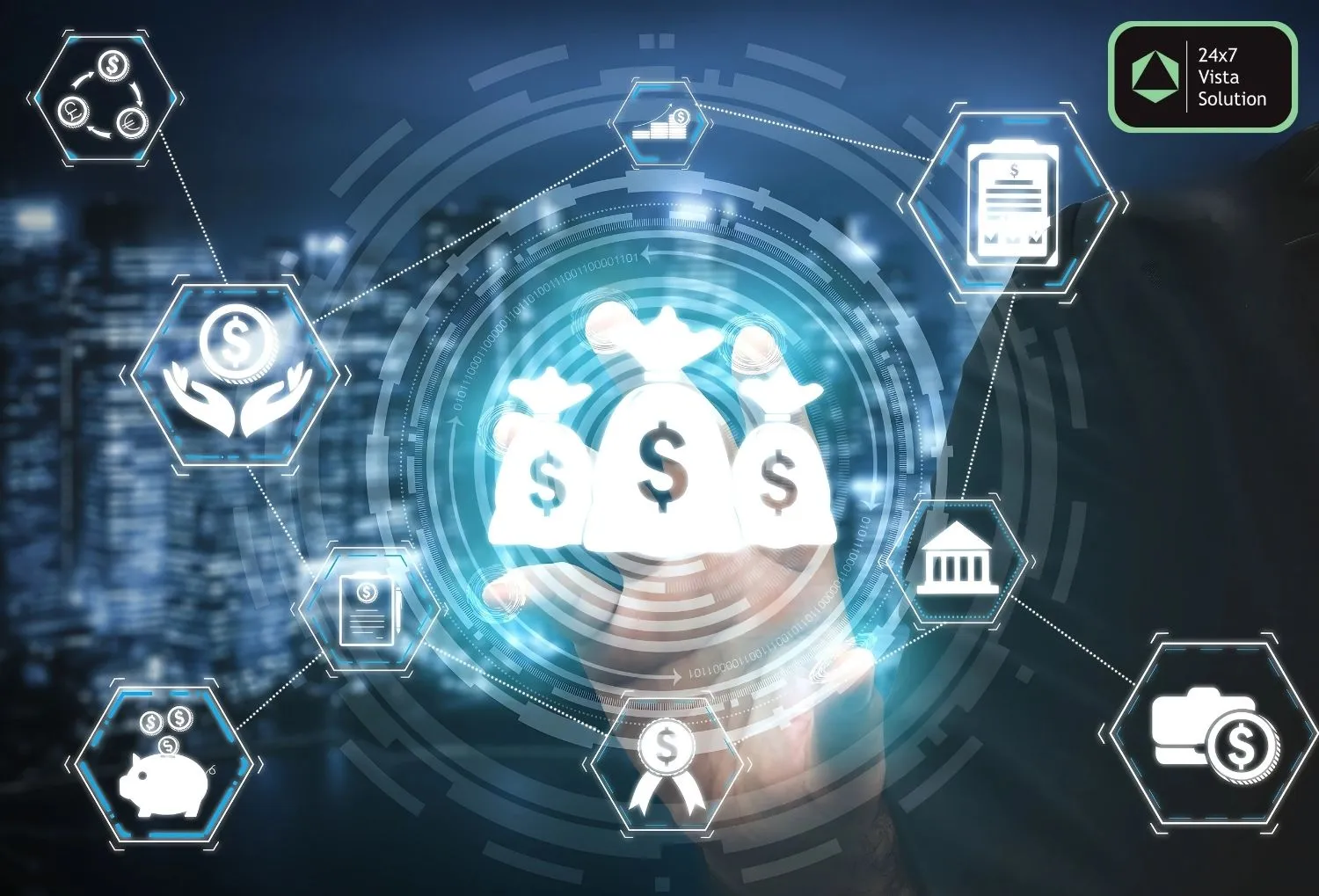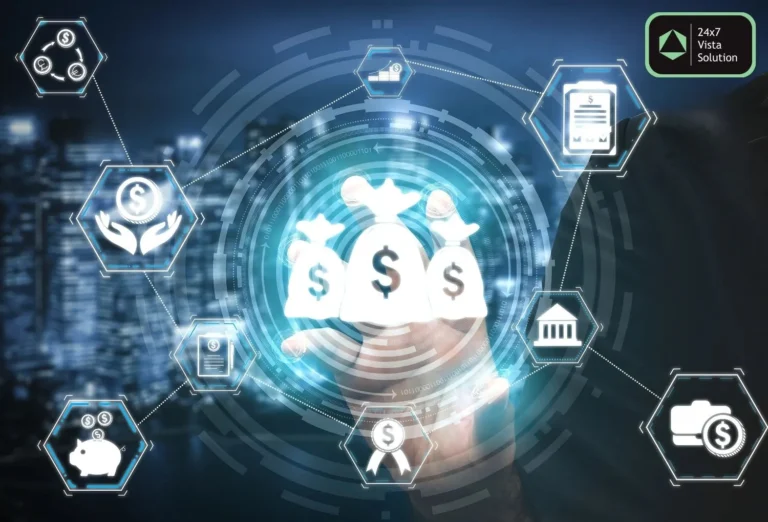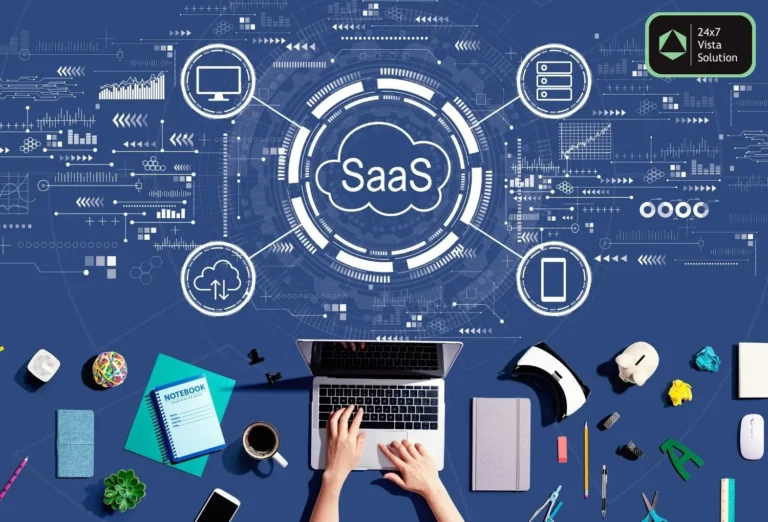Businesses are changing how they do their taxes thanks to AI. This makes accounts easier and more accurate. The best AI accounting software for taxes in 2025 combines advanced machine learning, automation, and data analytics to streamline tax filing and compliance. As more and more companies adopt such smart tools, it is essential to be familiar with their benefits and strengths and use them to make the right choice. This blog will talk about what AI accounting software for taxes is and the best tools on the market. It will also cover tips that can assist businesses and accountants to thrive in the digital economy of today.
What Is AI Accounting Software for Taxes?
Tax specific AI based accounting software automates functions such as
- Data entry
- Document management
- Filing according to learning
AI accounting web functions with data to identify the patterns and reduce errors. They automate collecting data and reduce human intervention, helping tax professionals and firms streamline operations, stay in compliance, and provide more accurate and timely financial reporting.
Why Businesses Are Shifting to AI-Based Accounting Tools
Many businesses are shifting to using AI book keeping software as tax regulations are increasingly complex and businesses need to be efficient. Manual accounting is time consuming and subject to error and this can lead to punishment or costly audit. The artificial intelligence (AI) solutions do not only attempt to automate routine procedures, but they also provide information that can guide companies in making sound decisions. In today’s chaotic world, businesses need automated background checks to reduce human error. This frees up employees for more productive activities.
Key Features of the Best AI Accounting Software for Taxes
Smart Tax Automation
Ai powered accounting software automatically retrieves the necessary tax data on invoices, receipts and financial statements. It takes advantage of machine learning models to categorize expenses, compute applicable rates of taxation and create small amounts of manualized tax filings.
Error Detection and Compliance
These applications keep on searching inconsistencies or abnormalities in transactions which can result in tax follies. They also update frequently to adhere to new tax regulations, which may assure that all the filings are within government expectations and minimise audit risks.
Integration with Bookkeeping Software
The AI accounting software should be integrative to the current bookkeeping systems. This guarantees that financial information flows efficiently throughout systems- cutting off redundant data entry, enhancing precision and giving a single perspective of the business financial position.
Customisation for Businesses and Firms
Accounting needs of each business are different. Top AI systems can be customized to support varying tax jurisdictions, industries and companies. They are able to customize reports and workflows as per the need to improve usability by the various accounting teams.
Best AI Accounting Software for Taxes in 2025 (Top Picks)
1. QuickBooks with AI-Powered Features
QuickBooks would be an excellent choice among small to mid-sized CPA firms. It is now equipped with convenient AI such as automatic transaction classification, smart receipt scanning, and helpful cash flow predictions. It becomes a full accounting automation system when you combine it with such tools as Hubdoc or Dext.
2. Xero AI Accounting Tools
Xero is known due to its friendly interface and third-party app integration. It has AI-powered bank reconciliations, expense management, and bookkeeping, which improve as you use it. Ideal in CPA firms that value the cloud.
3. FreshBooks with AI Add-Ons
FreshBooks offers AI-powered add-ons that assist with invoice processing, expense tracking, and tax calculation. It suits freelancers and small businesses looking for simple, cloud-based accounting software with automation benefits.
4. Vic.ai Your AI Bookkeeping Tool
Vic.ai is useful in accounting as it intelligently processes invoices, controls approval, and tracks expenditures with minimal human intervention. Best suited to medium to large enterprises seeking artificial intelligence-based knowledge and enhanced decision-making solutions.
5. Botkeeper – Your Go To Automated Bookkeeping System
Botkeeper is a convenient automated bookkeeping software that targets CPA firms. It manages the categorization of transactions, reconciliations, reporting, and a lot more. Excellent to delegate day-to-day chores yet still keep an eye on them.
6. Sage Intacct – Smart Accounting Made Easy
The powerful solution offers an easy-to-use general ledger and instant financial reporting, as well as compliance and tax management functionality, which is fueled by AI. It is a good option when the CPA firms are involved with a large number of clients or entities.
Benefits of Using AI Accounting Software for Taxes
Time Savings and Faster Tax Filing
Data entry and bank reconciliation are routine finance activities that are time consuming yet necessary. The AI Accounting Software automates these processes, which improves efficiency. It pulls out invoice information, balances transactions in real-time, and automatically sorts out expenses. Since this automation reduces human labor, financial teams can focus on strategic projects to improve accuracy and productivity. These projects are cost reduction and revenue expansion.
Reduced Costs Compared to Manual Accounting
The AI tax solutions are cost-effective since they automate processes and reduce human effort, thus reducing the costs of tax preparation. They are also helpful in determining the qualitative tax credits and tax deductions. An example is QuickBooks using AI to enable businesses to claim tax credits, resulting in an average of $1,300 in savings a year. It is a more efficient and cost-beneficial technology for businesses.
Enhanced Accuracy and Error Minimization
Accuracy is also one of the main benefits of AI in tax preparation. Tax solutions powered by AI may be able to automatically search and analyze financial data and eliminate the chances of human error. As an example, the accounting software, Vic.ai, an AI-powered tool, has been found to eliminate accounting errors up to 40%.
Improved Data Security and Compliance
Financial management requires compliance with regulatory requirements, but it may be difficult to maintain compliance with the evolving laws. The wrong choices in calculating taxes are subject to punishment and damage to reputation. The AI accounting software can facilitate compliance. It can automatically adjust tax regulations, provide correct filings, remove the chance of human errors in financial reporting. It also help spot fraud through transaction analysis. An example is that AI can make Goods and Services Tax (GST) compliance easier in India.
Real-Time Data Insights
The accounting software that is driven by AI provides real-time financial understanding as transactions are processed continuously and no longer relies on old-fashioned reports. This feature facilitates the decision-making process by providing data promptly, which allows the organization to track cash flow, predict revenue, and identify risks. AI is a valuable tool to make informed financial decisions. With the help of AI, finance teams can anticipate future earnings and detect anomalies. It allows teams to respond to these anomalies proactively.
Free vs Paid AI Accounting Software: Which One to Choose?
In choosing the the paid or free accounting software, one can look at 5 things.
1. Features: Free software only has the simplest. Paid applications are more varied, including automating tax filing and compliance.
2. Support: The majority of the free ones are inadequately or not supported at all, whereas paid ones generally do provide a helpline and a support team, 24-hour availability.
3. Customization: Paid packages have features that can be modified to suit the requirements of the business, whereas free software has fewer features that can be customized.
4. Safety: It is not as safe as it might be to use free options that do not include some paid functionality, such as encryption or multi-factor authentication.
5. Scalability: Paid software will expand as your business expands, and it becomes simpler to deal with more complex finances. On the contrary, free software may not be capable of managing such growth.
How AI Accounting Software Supports Accountants and Firms
AI Software for Accountants
Artificial Intelligence applications can help accountants by automating data entry, giving real-time views, and increasing productivity and professionalism by reducing the time spent on audit preparation.
AI Software for Accounting Firms
The AI feature help large companies to serve different customers, conduct automatic compliance tests, and produce tailored reports. This is really helpful for keeping many business portfolios running smoothly.
Challenges and Considerations When Using AI-Powered Accounting Software
1. Data Privacy and Security Concerns
The emergence of AI has turned out to be a significant issue in data security and privacy. There is a need to have strong security that ensures that sensitive financial information is not stolen. The accounting firms must respond to these concerns by investing in security systems. Considerations
To prevent data breaches, companies should implement good encryption and keep data secure, carry out frequent checks, and apply strict access control. The layered security approach will assist in reducing the risks of data breaches and responsible AI technology use.
2. High cost
AI requires a large initial investment in resources, training, and infrastructure, which smaller enterprises may not be able to afford. Also, integration may impose operations on the time and resources required to integrate. To make these initial investments, companies need to analyze the long-term payoffs.
Considerations
Companies must invest in maintaining AI systems and updating them. Basically, AI is an active technology that needs frequent improvement to meet changing data trends and business requirements. This ensure the precision of AI-related work.
3. Not Ready to Adapt
Several professionals fear embracing AI because of job displacement, and new tools used by teams are quite complex and may hinder team adoption. The learning curve related to AI accountability software could be a problem for employees who have been accustomed to working traditionally. To overcome these challenges, one should develop trust and show how AI can facilitate their roles and not eliminate them.
Considerations
Firms are using online courses and workshops to educate individuals on AI. Online platforms like Coursera and Udemy offer tailored AI basics and advanced training. This lets employees learn at their own pace and practice hands-on.
4. Ethical Implementation
AI systems make decisions based on algorithms and trends that they picked up in data. We should consider how to address biases, fairness, and transparency around how AI works to ensure that AI is used ethically in accounting.
Considerations
The concerns regarding the AI decisions that can impact individuals should be considered by organizations, such as in loan applications, credit ratings, and resource allocation. One should ensure that these are decisions that are just, unbiased, and accountable.
Future Trends in AI Accounting Software for Taxes
1. Predictive analytics: The predictive analytics in accounting does not simply involve the capability to examine previous information. It is also the capability of making right predictions and trends.
2. Easy Tax Preparation: You do not have to do much human work, we gather your data and submit your returns.
3. AI Assistants to the clients: A means of processing the daily requests of the clients and enhancing customer service.
4. Accounting Fraud Detection: Intelligent algorithms that can detect fraud very fast.
How to Choose the Best AI Accounting Software for Your Needs
The choice of the appropriate software is determined by a lot of factors, which include:
- Business size
- Industry
- Tax complexity
- Budget
- Required integrations
Before coming up with a selection, consider the user-friendliness, support of the vendor, and ability to comply to achieve the best value.
Final Thoughts
The best AI accounting software for taxes in 2025 offers transformative benefits—speed, accuracy, and compliance, helping businesses and accountants navigate complicated tax landscapes effortlessly. With the adoption of artificial intelligence as a mainstream technology, it is important to invest in the suitable accounting equipment. It will allow the company to stay competitive in the rapidly evolving market. Do the right thing and prepare yourself to the future of tax management.




